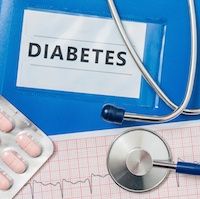Article
AFib Risk Higher for T1D Patients with Renal Complications, Poor Glycemic Control
Author(s):
After adjusting for comorbidities, education level, birthplace, and duration of diabetes, the data showed that men with T1D faced a slightly higher risk of AFib, but women with T1D faced a 50% higher risk of developing AFib.

People with type 1 diabetes (T1D) have a higher risk of atrial fibrillation (AFib), but the risk is most pronounced when they also have renal complications and poor glycemic control, according to a new study.
The research, led by a team from the University of Gothenburg, in Sweden, also found that the impact of T1D on AFib risk was much higher for women than for men.
Marcus Lind, MD, PhD, said the findings should be kept in perspective. He noted the excess risk of AFib in T1D patients is still lower than the excess risk of other cardiovascular diseases, and he said the excess risk is relatively low when patients do not have renal complications or hyperglycemia. Still, the findings add an additional data point in the research into 2 conditions that are both on the rise.
To conduct the study, researchers looked at 36258 patients in Sweden’s federal diabetes patient registry and 179980 control patients from a government population registry. AFib cases were obtained from a third national patient registry in Sweden. Patients were tracked from Jan. 1, 2001 through Dec. 31, 2013.
After adjusting for comorbidities, education level, birthplace, and duration of diabetes, the data showed that men with T1D faced a slightly higher risk of AFib, but women with T1D faced a 50% higher risk of developing AFib.
In hyperglycemic patients, the hazard ratio was 2.2 for men and 2.62 for women. Kidney disease also raised the risk in both women and men. Lind told MD Magazine that it’s not clear why T1D appears to correlate with a higher risk of AFib. More research is needed to answer that question or develop a meaningful hypothesis.
Though his study suggested a higher excess risk of AFib for women, Lind said he doesn’t think gender should be a key factor when determining whether to screen patients.
Lind said doctors should be quick to screen T1D patients for AFib if they have known cardiac disease, like heart failure, or if they have renal complications.
It is better, Lind said, to err on the side of screening, “since it is often just checking the pulse rate or doing a heart auscultation at the first step and then confirming with an ECG.”
Older patients are also good candidates for aggressive screening, according to Lind. He noted that early detection of AFib can have a major impact on outcomes. “And remember, in many cases the AF rhythm can be reverted back if detected and medications are improving and can prevent many strokes,” he said.
In the US, the Centers for Disease Control and Prevention (CDC) estimates that between 3 million and 6 million people have AFib. The American Diabetes Association estimates 1.25 million Americans have T1D.
Separate research has also noted a correlation between AFib and the far-more-common type 2 diabetes. However, as with T1D, it’s not clear whether the correlation is the result of a causal link, or simply a byproduct of the fact that both often follow hypertension, atherosclerosis, and obesity.
Related Coverage
Genes Link Type 2 Diabetes, Coronary Heart Disease
Cocoa Compound Found to Have Positive Effect on Diabetes Management





